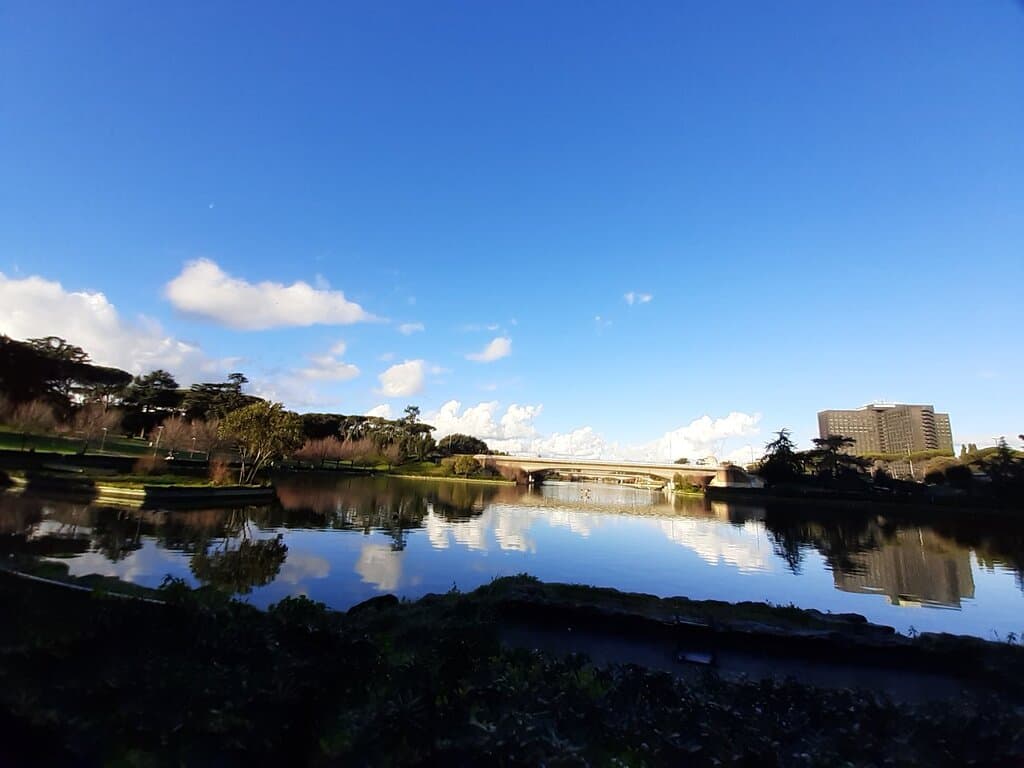
EUR district Rome
Rome's modern architectural marvel, the EUR district, showcases striking rationalist design and offers a unique urban experience.
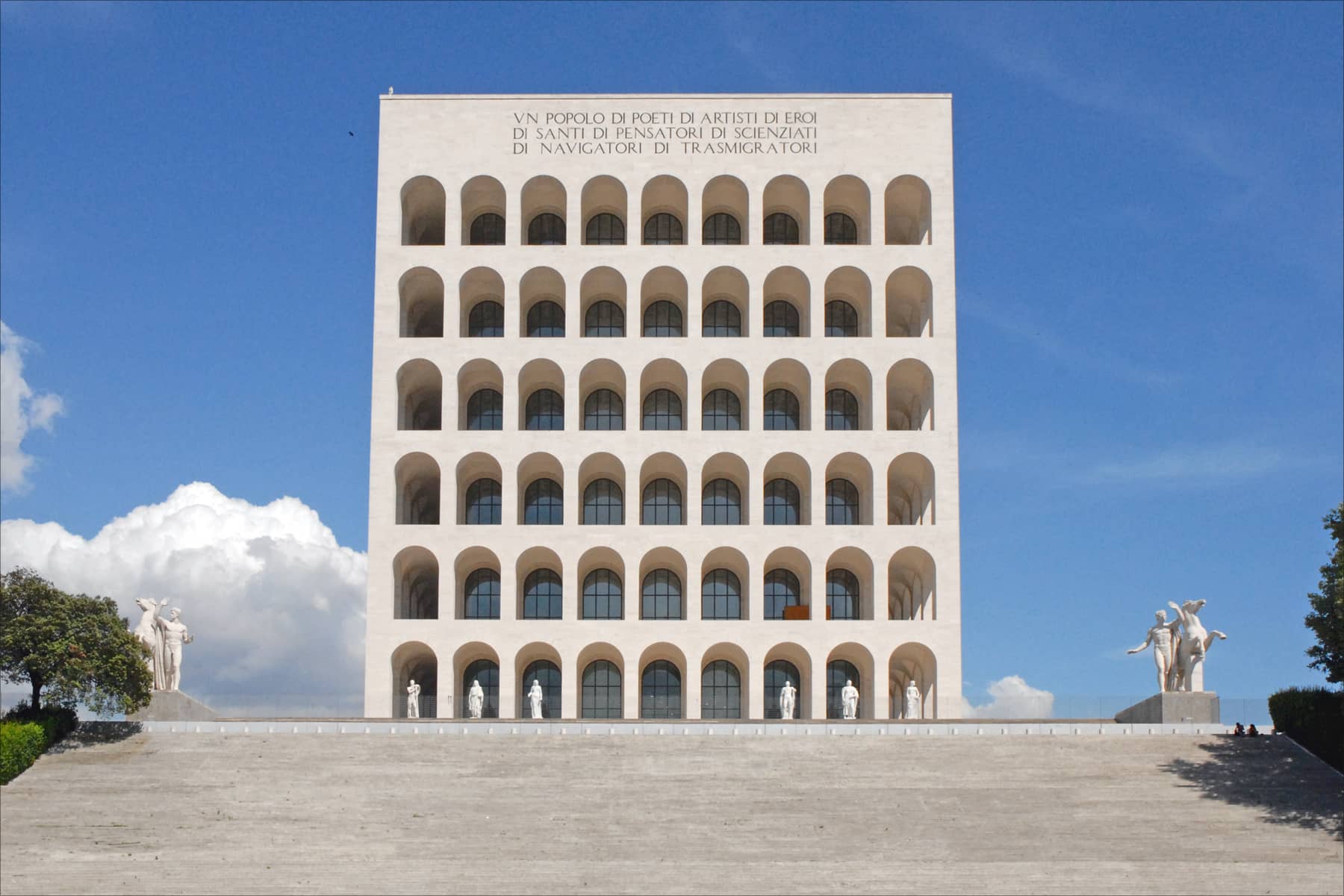
Highlights
Must-see attractions

Social
From TikTok & Reddit
Best Time
Experience the business district buzz

EUR district Rome
Best Time
Experience the business district buzz

Highlights
Must-see attractions
Rome's modern architectural marvel, the EUR district, showcases striking rationalist design and offers a unique urban experience.
"A fascinating architectural journey into Rome's 20th-century ambitions."
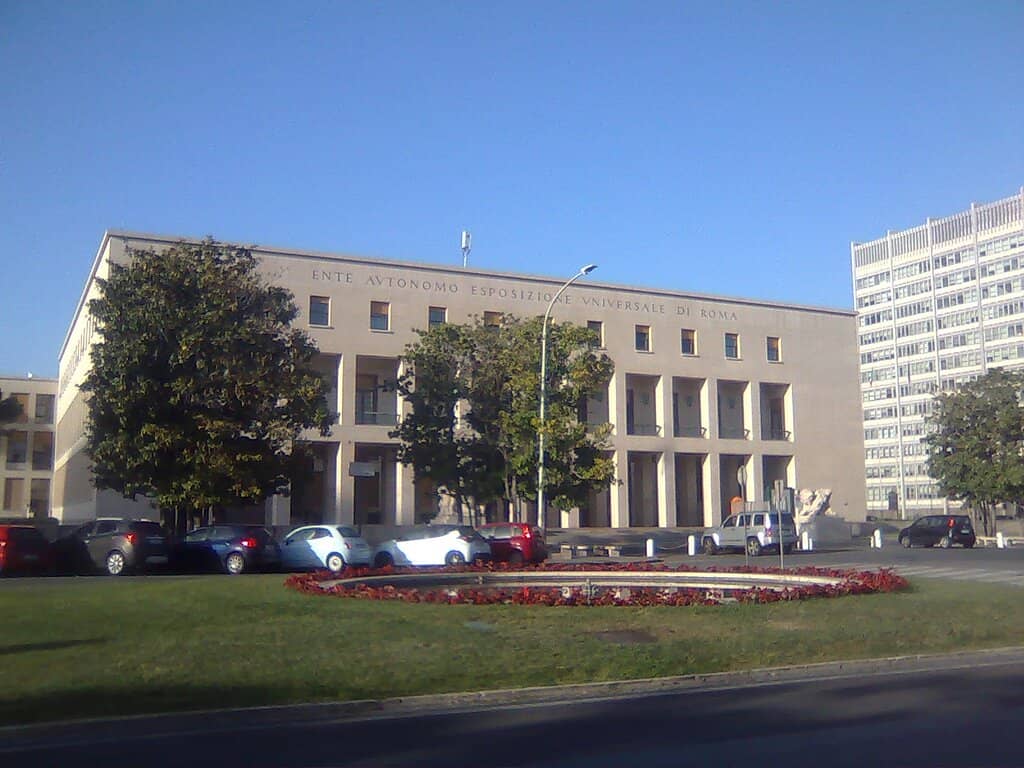
Weekday vs. Weekend Vibe
EUR is a business district; weekdays are busy, weekends are quiet. Plan accordingly!
Metro is Your Friend
The B line metro connects EUR to central Rome. Easy to navigate! :train:
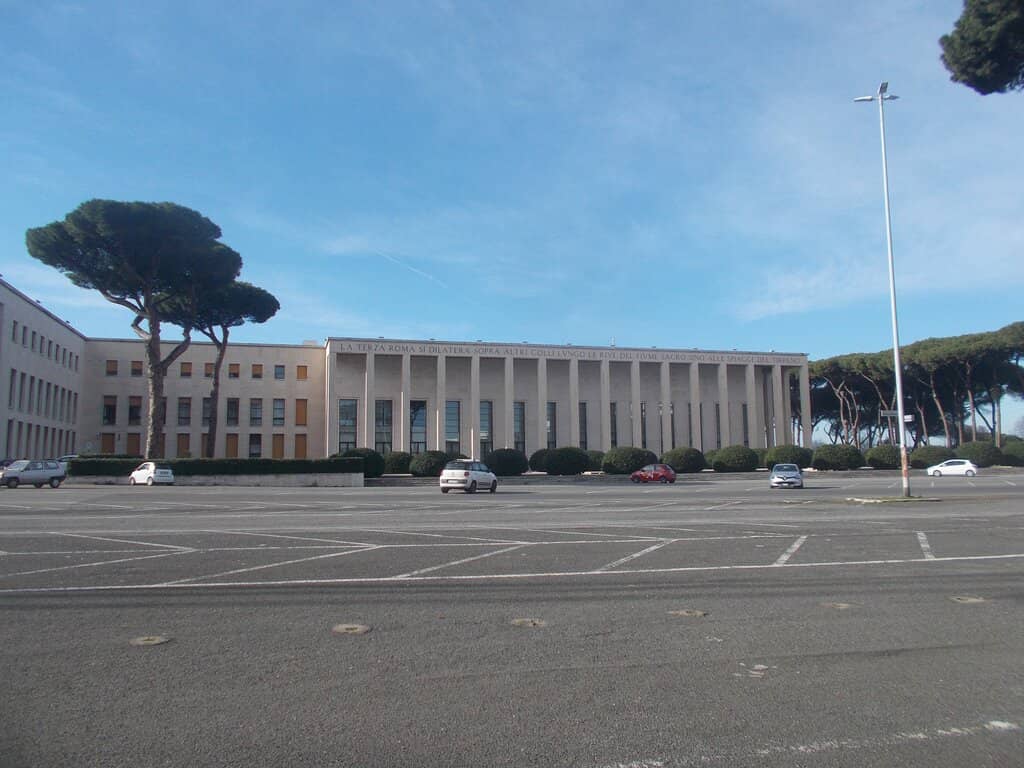
Highlights
Discover the most iconic attractions and experiences

Palazzo della Civiltà Italiana
Piazza Guglielmo Marconi
Iconic 'Square Colosseum' with striking rationalist architecture. A must-see for its unique design and historical significance.
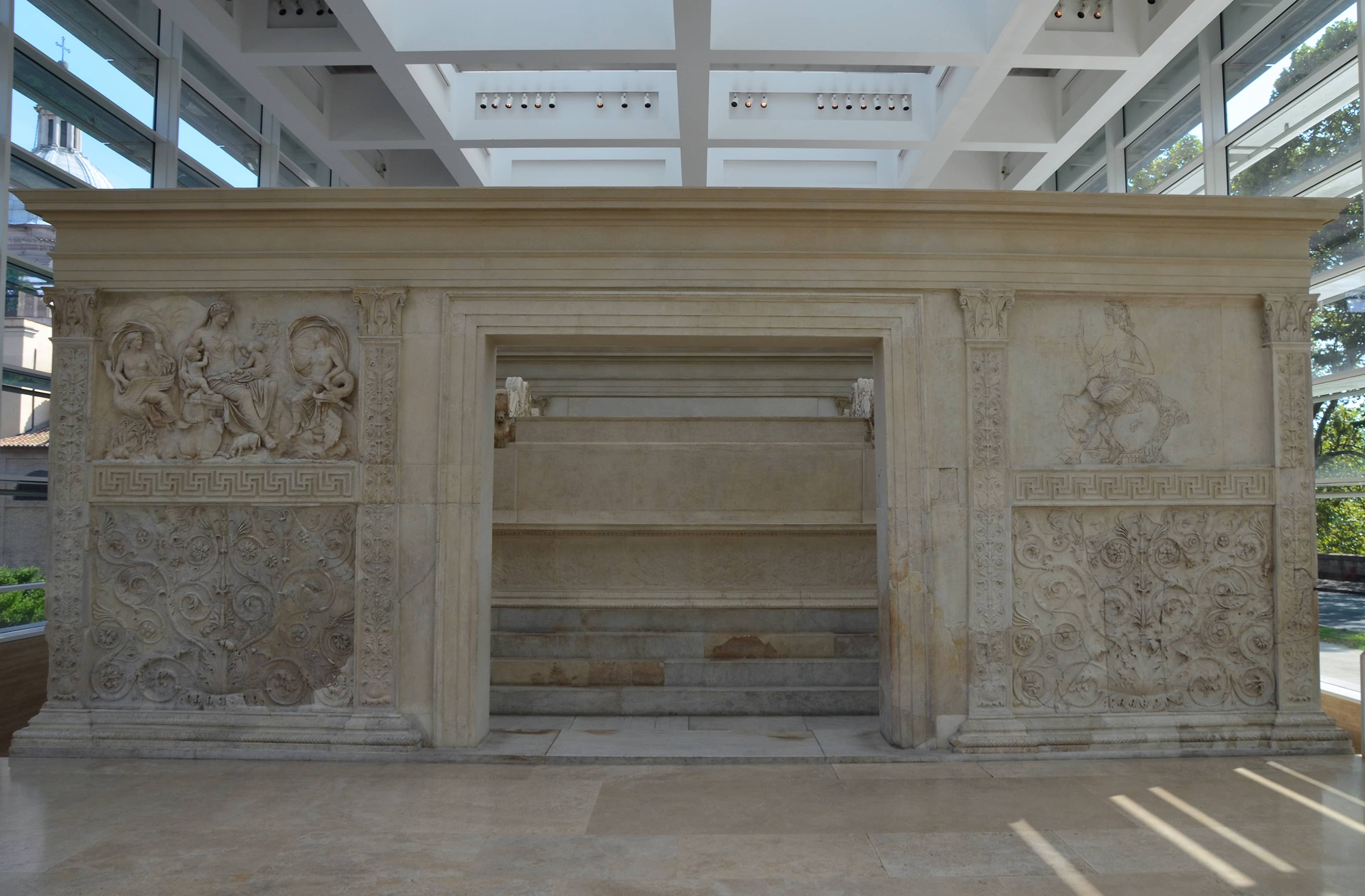
Museo dell'Ara Pacis
Lungotevere in Augusta
A modern architectural marvel housing an ancient Roman altar. Offers a fascinating blend of old and new.
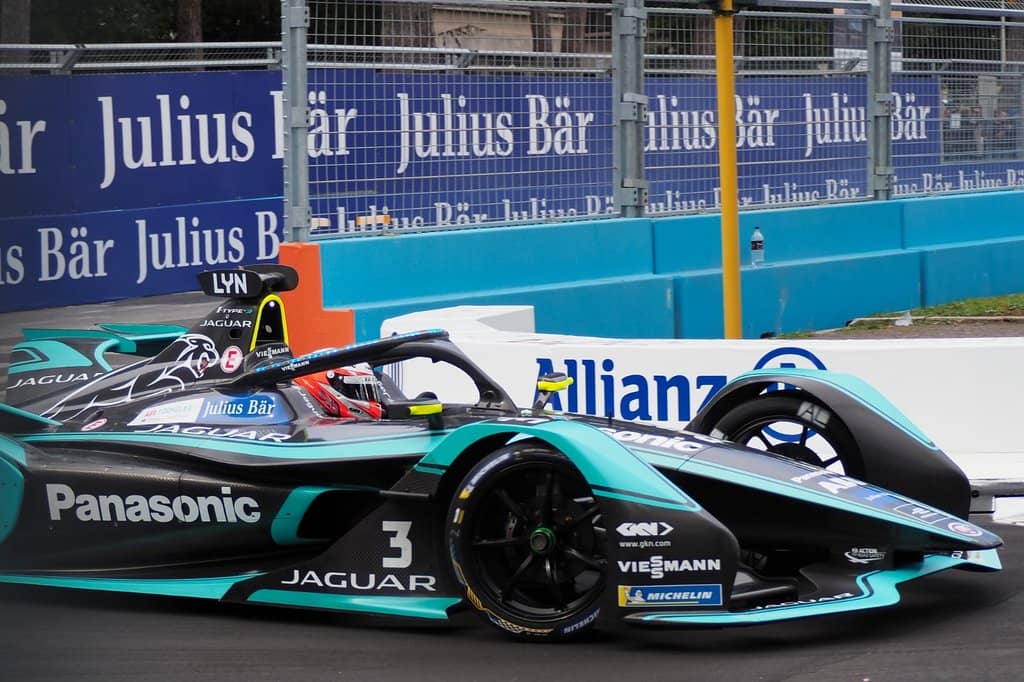
Laghetto dell'EUR
Central EUR
A serene artificial lake offering a peaceful escape. Perfect for a stroll or a moment of relaxation amidst the urban landscape.
Plans like a pro.
Thinks like you
Planning Your Visit
Understand EUR's Dual Nature
Getting Around EUR
Best Times
Insider Tips
from TikTok, Instagram & Reddit
Weekday vs. Weekend Vibe
EUR is a business district; weekdays are busy, weekends are quiet. Plan accordingly!
Metro is Your Friend
The B line metro connects EUR to central Rome. Easy to navigate! :train:
Architectural Gem Hunt
Explore the unique rationalist architecture scattered throughout the district. :camerawithflash:
Green Oasis
Don't miss the Laghetto dell'EUR for a relaxing break. :park_park:
Tips
from all over the internet
Weekday vs. Weekend Vibe
EUR is a business district; weekdays are busy, weekends are quiet. Plan accordingly!
Metro is Your Friend
The B line metro connects EUR to central Rome. Easy to navigate! :train:
Architectural Gem Hunt
Explore the unique rationalist architecture scattered throughout the district. :camerawithflash:
Green Oasis
Don't miss the Laghetto dell'EUR for a relaxing break. :park_park:
What Travellers Say
Reviews Summary
Visitors often find the EUR district a striking contrast to historic Rome, appreciating its unique rationalist architecture and modern amenities. While some find it less charming than the ancient city, others enjoy its spaciousness and distinct atmosphere, especially on quieter weekends. It's a place that sparks conversation about Italy's 20th-century history and urban planning.
What People Like
What People Dislike
Frequently Asked Questions
🚇 🗺️ Getting There
The easiest way to reach the EUR district in Rome is by taking the Metro Line B (Blue Line) to one of its stations, such as EUR Fermi or EUR Palasport. This line connects EUR to major hubs like Termini Station, making it accessible from most parts of the city.
Yes, the EUR neighborhood is well-served by Rome's public transport system, primarily through the Metro Line B. Several bus routes also operate within and connect to the surrounding areas.
Travel time from central Rome (e.g., Termini Station) to the EUR district by Metro Line B typically takes around 20-30 minutes, depending on your specific destination within EUR and train frequency.
Driving to EUR is possible, but be aware of Rome's traffic and ZTL (Limited Traffic Zones) if you're coming from the historic center. Parking can be found in designated lots and on some streets, though it can be challenging during weekdays.
Yes, taxis and ride-sharing services like Uber are available in Rome and can take you to the EUR district. This can be a convenient option, especially if you're traveling with luggage or prefer direct transport.
🎫 🎫 Tickets & Entry
The EUR district itself is a public area, so no tickets are required to explore its streets, parks, and admire its architecture. However, specific museums or attractions within EUR, like the Museo dell'Ara Pacis, will have their own admission fees and ticketing requirements.
As a public district, EUR is accessible at all times. However, individual attractions within EUR will have their own operating hours, which you should check before visiting. Museums typically open around 9 AM and close between 6 PM and 7 PM.
The Palazzo della Civiltà Italiana, also known as the 'Square Colosseum,' is an external structure. You can admire its architecture from the outside for free. Access to any internal exhibitions or events would require separate tickets.
Yes, walking around the Laghetto dell'EUR (EUR Lake) is completely free. It's a public park area designed for recreation and relaxation, making it a popular spot for locals and visitors alike.
Tickets for museums and attractions within EUR can usually be purchased at the venue's entrance. For popular sites, it's often recommended to book tickets online in advance to save time and guarantee entry, especially during peak tourist seasons.
🎫 🏛️ Onsite Experience
The EUR district is primarily known for its unique rationalist architecture, built during the Fascist era. It's also a major business and administrative hub, offering a modern contrast to Rome's ancient historical center.
Key architectural sites include the Palazzo della Civiltà Italiana (the 'Square Colosseum'), the Palazzo dei Congressi, and the Basilica dei Santi Pietro e Paolo. The overall urban planning and monumental buildings are impressive.
EUR can be a good base if you prioritize modern amenities, good transport links (Metro B), and potentially lower accommodation costs than the historic center. However, it's further from major ancient sites, requiring more travel time.
You can explore the architecture, visit museums like the Museo dell'Ara Pacis, relax by the Laghetto dell'EUR, or enjoy the green spaces. It's also a good area for shopping and dining, especially during weekdays.
EUR offers a stark contrast with its wide avenues, modern and rationalist buildings, and planned urban design, whereas historic Rome is characterized by ancient ruins, narrow cobblestone streets, and Baroque architecture.
🍽️ 🍽️ Food & Dining
Yes, the EUR district offers a variety of dining options, from casual cafes and pizzerias to more upscale restaurants, particularly catering to the business crowd during weekdays. You'll find diverse Italian cuisine and international options.
You can expect a range of Italian classics, including pasta, pizza, and seafood, as well as international cuisine. Many restaurants offer business lunch menus during the week. Look for trattorias for more traditional Roman dishes.
While some restaurants cater to business professionals, you can find affordable options like pizzerias, sandwich shops, and cafes. Exploring side streets or areas slightly away from the main squares might yield more budget-friendly choices.
Numerous cafes and pasticcerias throughout EUR serve excellent Italian coffee. For gelato, look for artisanal gelaterias; while not as ubiquitous as in the historic center, you can still find delicious options, especially near the Laghetto.
Many restaurants in EUR remain open on weekends, though the atmosphere might be quieter than during the week. Some may have reduced hours, so it's always a good idea to check in advance, especially for dinner reservations.
📸 📸 Photography
The Palazzo della Civiltà Italiana is a prime photo spot due to its unique facade. Other great locations include the Palazzo dei Congressi, the Basilica dei Santi Pietro e Paolo, and the scenic Laghetto dell'EUR.
EUR is ideal for architectural photography, capturing the striking rationalist style. It's also great for urban landscapes and capturing the contrast between modern design and Roman life.
The 'golden hours' around sunrise and sunset offer beautiful light for photographing the architecture. Midday can be harsh, but the geometric lines of the buildings can still be striking. Weekends offer fewer crowds for unobstructed shots.
Generally, photography is permitted in public areas of EUR. However, for specific museums or private buildings, it's always best to check their individual policies regarding photography.
A wide-angle lens is highly recommended to capture the scale of the buildings. A standard zoom lens is versatile. Consider a tripod for low-light conditions or to ensure sharp architectural shots.
For Different Travelers
Tailored advice for your travel style
👨👩👧 Families with Kids
Consider visiting on a weekend when the district is less crowded and more relaxed. Pack snacks and drinks, as while there are cafes, they might be more geared towards business patrons. The metro access makes it relatively easy to get to, providing a break from the more intense sightseeing in the historic center. It's a good option for a change of pace and to explore a less-visited, yet architecturally significant, part of the city.
🚶 Architecture Enthusiasts
Take a self-guided walking tour, focusing on the urban planning and the interplay of light and shadow on the travertine facades. Consider visiting during weekdays to see the district in its functional capacity as a business hub, or on weekends for a more serene, less crowded experience to fully appreciate the structures. Don't forget your camera; EUR offers incredible photographic opportunities, especially during the golden hours.
Deep Dives
In-depth insights and expert knowledge
The Architecture of EUR: A Rationalist Masterpiece
Key buildings like the Palazzo della Civiltà Italiana (often called the 'Square Colosseum') exemplify this style with its repetitive arches and stark, elegant facade. The Palazzo dei Congressi and the Basilica dei Santi Pietro e Paolo are other significant examples that contribute to EUR's unique urban landscape. Walking through EUR feels like stepping into a different historical period, offering a fascinating glimpse into Italy's architectural ambitions of the mid-20th century. It’s a stark contrast to the ancient ruins and Baroque splendor found elsewhere in the city.
Many visitors find the architectural uniformity both striking and a bit eerie, offering a unique photographic opportunity. The wide avenues and open spaces, designed for large crowds and grand displays, now serve a more modern purpose as a business and residential area. Exploring EUR provides a different perspective on Rome's history and urban development, moving beyond the typical tourist trail to discover a significant, albeit controversial, chapter of its past.
EUR: A Modern Hub with a Complex Past
This dual identity—a modern business hub built upon a foundation of Fascist ideology—is what makes EUR so intriguing. Visitors often note the stark contrast between its contemporary function and its historical origins. The district’s name itself, Esposizione Universale Roma, points to its original purpose. Today, it houses numerous government ministries, corporate offices, and cultural institutions, making it a vital part of Rome's economic landscape.
Understanding this history adds a layer of depth to any visit. While the architecture is undeniably impressive and photogenic, it’s important to acknowledge the context in which it was created. Many travelers find EUR to be a fascinating study in contrasts, offering a unique perspective on Rome's 20th-century history and its ongoing evolution.
Social
from TikTok, Instagram & Reddit